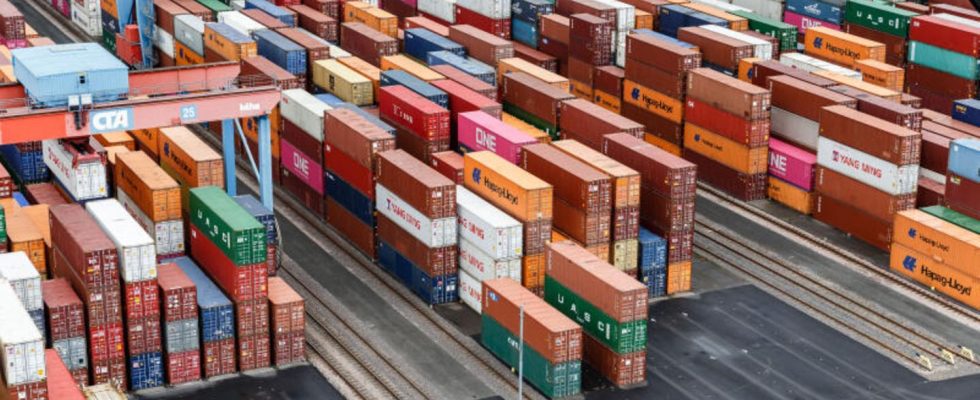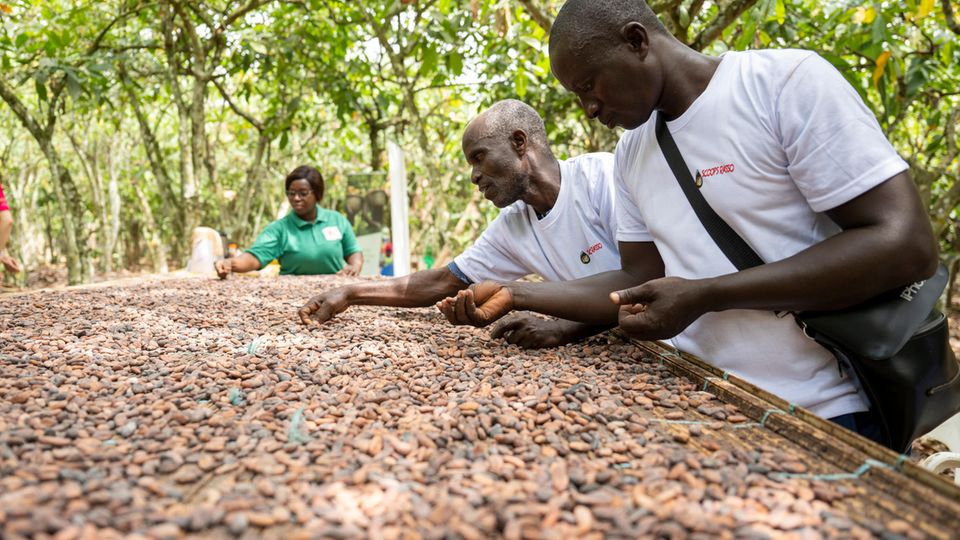Application failed
Hardly any chances for EU supply chain law before the European elections
Containers are on a storage area in the Altenwerder container terminal. For the time being, there is no majority in sight for the EU supply chain law.
© Markus Scholz/dpa
The time to pass a European supply chain law is slowly running out. The representatives of the member states voted on Wednesday and still did not achieve the necessary majority.
In the dispute over a European supply chain law, time is running out to pass the regulations before the European elections at the beginning of June. A vote among the representatives of the member states in Brussels on Wednesday still did not produce the necessary majority, as the Belgian Council Presidency announced. The main reason for this is the Federal Government’s abstention because the FDP is blocking approval.
The planned directive is intended to hold companies accountable for child labor, exploitation and environmental pollution in their supply chains. The draft goes over some points Supply Chain Act, which has been in force in Germany since last year.
The federal government had originally advocated for a European regulation. Most recently, Federal Justice Minister Marco Buschmann (FDP) found the law to be “unreasonable for small and medium-sized companies” in its current form. Germany therefore had to abstain from Brussels, which was seen as a dissenting vote.
Supply Chain Act Initiative demands word of power from the Federal Chancellor
The Supply Chain Act initiative, which is supported by trade unions, human rights and environmental organizations, demanded a word of power from Chancellor Olaf Scholz (SPD). The Chancellor was “being literally paraded by the FDP in one of the EU’s most important human rights and environmental projects,” explained the initiative’s spokeswoman, Johanna Kusch.
German business associations, however, welcomed the vote result. “German medium-sized businesses are drowning in reporting obligations and a flood of questionnaires, even without additional burdens from Brussels,” emphasized the President of the Federal Association for Wholesale, Foreign Trade and Services, Dirk Jandura.
The President of the German Chamber of Commerce and Industry (DIHK), Peter Adrian, spoke of “good news” for companies. “Significant negative effects on the value chains and the competitiveness of the economy have not yet been decided.”
The Federal Association of Sustainable Economy, on the other hand, complained of a “tragedy for German sustainability policy”. Without European regulation, German companies would also be at a disadvantage on the market because they have to adhere to the regulations of the German Supply Chain Act.
The service union Verdi accused the FDP of ruining Germany’s reputation among its EU partners. “It is also extremely embarrassing that the largest EU member state ends up overturning compromises that have already been agreed.”
The negotiators from the European Parliament and EU countries actually agreed on the law in December. The final approval of the member states was considered a formality – but Germany and Italy changed course. According to diplomats, nine smaller EU countries also abstained from voting on Wednesday. The necessary majority was not achieved.
Time is slowly running out
Time is now running out to pass the law before the European elections at the beginning of June. The Belgian Council Presidency announced that it would continue to look for solutions, but so far this has not been seen as promising. It is unclear whether negotiations would continue with a new European Parliament after the elections. The FDP advocates burying the previous draft. After the elections, the new EU Commission should make a fresh proposal.
The former Federal Development Minister and current head of the UN Organization for Industrial Development (Unido), Gerd Müller, warned that the EU supply chain law would fail. “There must be no business models that are based on child labor and exploitation,” said the CSU politician to the “Süddeutsche Zeitung”. As development minister, he worked on the German supply chain law. “And this law works, all the horror scenarios have not come to pass.”


